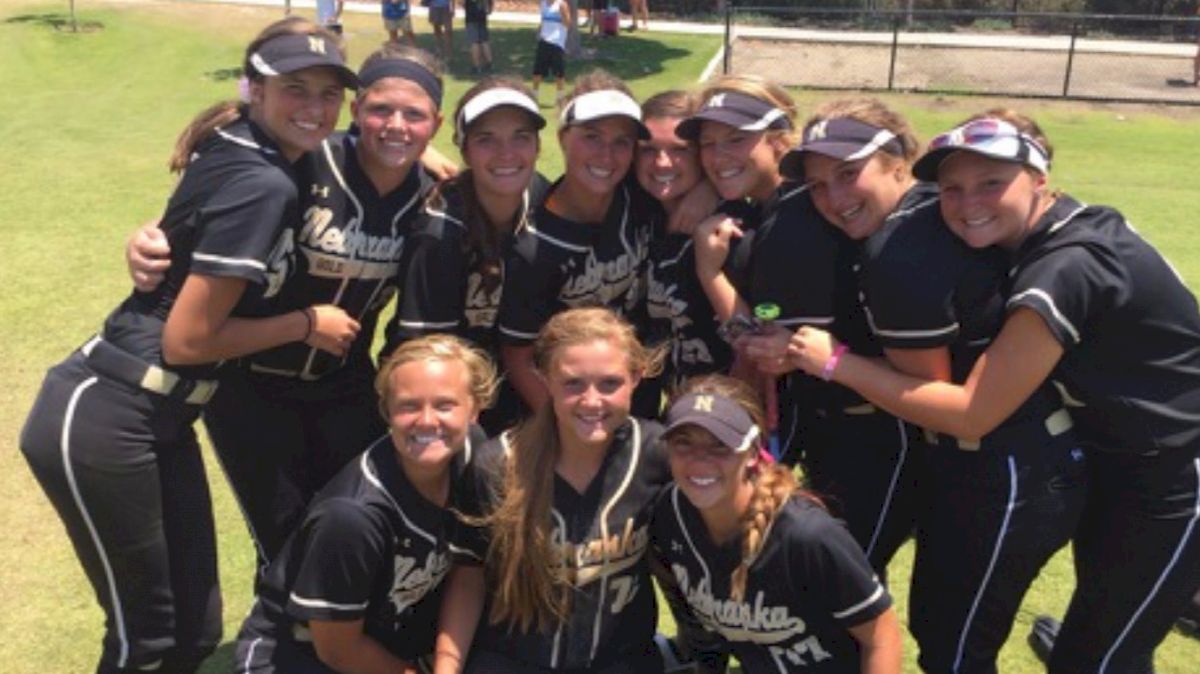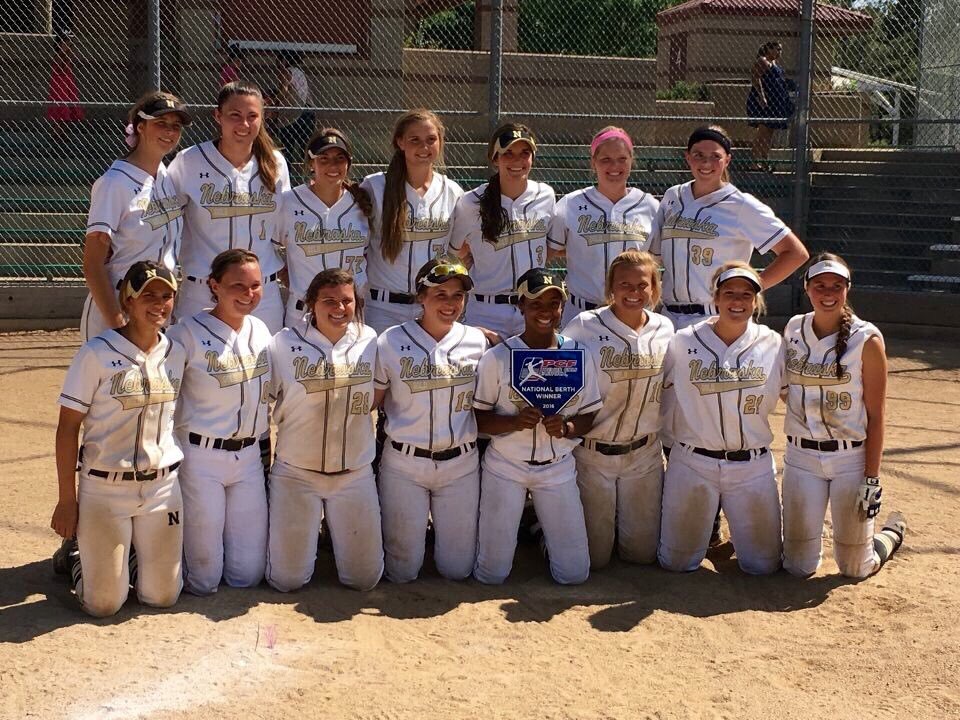How Nebraska Gold Raised the Bar
How Nebraska Gold Raised the Bar
Travis Unzicker, coach for the Nebraska Gold helped build a successful organization where competitive softball was non-existent. Eight years later, Nebraska

Travis Unzicker, coach for the Nebraska Gold helped build a successful organization where competitive softball was non-existent. Eight years later, Nebraska Gold is one of the toughest teams to beat in the mid-west.
Unzicker recalls the time when only a few girls would go on to play Division l softball. Now, the culture of Nebraska softball has totally transformed. He tells FloSoftball the story of how the Nebraska Gold organization changed the landscape of competitive softball in Nebraska.

I’ve been a baseball guy all my life. When my oldest daughter (Madi Unzicker) started playing at six years old, I’ve been coaching ever since. She started doing club softball when she was about eight with Millard softball association. When she was about 15, we thought Nebraska was a little bit behind the kids on the west coast. So we decided to form the Nebraska Gold program in 2008. We brought in all the best players in the metro area of Omaha, Lincoln, and the surrounding area.
Since then, it’s grown and this next year we’ll have six teams. Now that recruiting is starting so young, we decided it was in the best interest of our kids to start a 13 and 14 team.
Looking back, what do you think was the biggest turning point for the program? The first year we went to PGF Nationals which was 2013 and finished in the Top 10. That was a turning point for our program. The people locally in our area recognized that we could compete on a national level with teams from California, Florida, and Texas. Now teams from across the country know our name, they know our program.
How do you keep your team so competitive? I think softball around here has gotten a lot better. Five years ago, we only had about 12 girls that could compete at a gold level. Now we have three or four teams that can compete at a national level. We think we can compete with the top 10 programs in the nation. Being able to play against the better competition year in and year out and in more tournaments in Boulder, Chicago, and Huntington Beach, and Oklahoma City. When we can see the top 25 programs in the nation, we’ve learned where we need to be to play at that level.
What was your biggest takeaway going to those big tournaments? In California, they may have 10 teams like ours and we have one. Our population is so much smaller. That’s why it’s so important to have the best kids in the metro area.
Have you seen the level of interest in competitive softball increase over the last 5 to 10 years? Absolutely, in the last five or six years we’ve seen other programs in Nebraska trying to keep up with our Nebraska Gold program. They’ve gotten better. The competition has gotten better. There used to be a couple of teams that were competitive. Now there’s 10 or 12 teams.
How would describe the style of coaching on Nebraska Gold? We bring a high class, quality, high intensity, integrity type with people. We have coaches on staff with a high knowledge about softball. We’ve surrounded our players with coaches who are willing to learn.
How does the team train during the winter time? Where do you train? When first started we basically had a facility that had two cages and 30 ft by 30 ft open area. Now, two of our bigger organizations merged together and we have two huge indoor facilities that are as big or bigger than University of Nebraska’s. We have state of the art facilities now that we can go in and train. We have around 20 batting cages and a full indoor infield. We also have another huge indoor facility that has a blow up dome. We can play full indoor games. So now we can train year round. The two facilities are the Next Level and the Barn.
If you could shadow any coach for a day, who would it be? Rhoda Revelle, Lori Sippel, and Diane Miller.
If you could clone any softball player, who would it be? Crystal Bustos
Unzicker recalls the time when only a few girls would go on to play Division l softball. Now, the culture of Nebraska softball has totally transformed. He tells FloSoftball the story of how the Nebraska Gold organization changed the landscape of competitive softball in Nebraska.

I’ve been a baseball guy all my life. When my oldest daughter (Madi Unzicker) started playing at six years old, I’ve been coaching ever since. She started doing club softball when she was about eight with Millard softball association. When she was about 15, we thought Nebraska was a little bit behind the kids on the west coast. So we decided to form the Nebraska Gold program in 2008. We brought in all the best players in the metro area of Omaha, Lincoln, and the surrounding area.
Since then, it’s grown and this next year we’ll have six teams. Now that recruiting is starting so young, we decided it was in the best interest of our kids to start a 13 and 14 team.
Looking back, what do you think was the biggest turning point for the program? The first year we went to PGF Nationals which was 2013 and finished in the Top 10. That was a turning point for our program. The people locally in our area recognized that we could compete on a national level with teams from California, Florida, and Texas. Now teams from across the country know our name, they know our program.
How do you keep your team so competitive? I think softball around here has gotten a lot better. Five years ago, we only had about 12 girls that could compete at a gold level. Now we have three or four teams that can compete at a national level. We think we can compete with the top 10 programs in the nation. Being able to play against the better competition year in and year out and in more tournaments in Boulder, Chicago, and Huntington Beach, and Oklahoma City. When we can see the top 25 programs in the nation, we’ve learned where we need to be to play at that level.
What was your biggest takeaway going to those big tournaments? In California, they may have 10 teams like ours and we have one. Our population is so much smaller. That’s why it’s so important to have the best kids in the metro area.
Have you seen the level of interest in competitive softball increase over the last 5 to 10 years? Absolutely, in the last five or six years we’ve seen other programs in Nebraska trying to keep up with our Nebraska Gold program. They’ve gotten better. The competition has gotten better. There used to be a couple of teams that were competitive. Now there’s 10 or 12 teams.
How would describe the style of coaching on Nebraska Gold? We bring a high class, quality, high intensity, integrity type with people. We have coaches on staff with a high knowledge about softball. We’ve surrounded our players with coaches who are willing to learn.
How does the team train during the winter time? Where do you train? When first started we basically had a facility that had two cages and 30 ft by 30 ft open area. Now, two of our bigger organizations merged together and we have two huge indoor facilities that are as big or bigger than University of Nebraska’s. We have state of the art facilities now that we can go in and train. We have around 20 batting cages and a full indoor infield. We also have another huge indoor facility that has a blow up dome. We can play full indoor games. So now we can train year round. The two facilities are the Next Level and the Barn.
If you could shadow any coach for a day, who would it be? Rhoda Revelle, Lori Sippel, and Diane Miller.
If you could clone any softball player, who would it be? Crystal Bustos